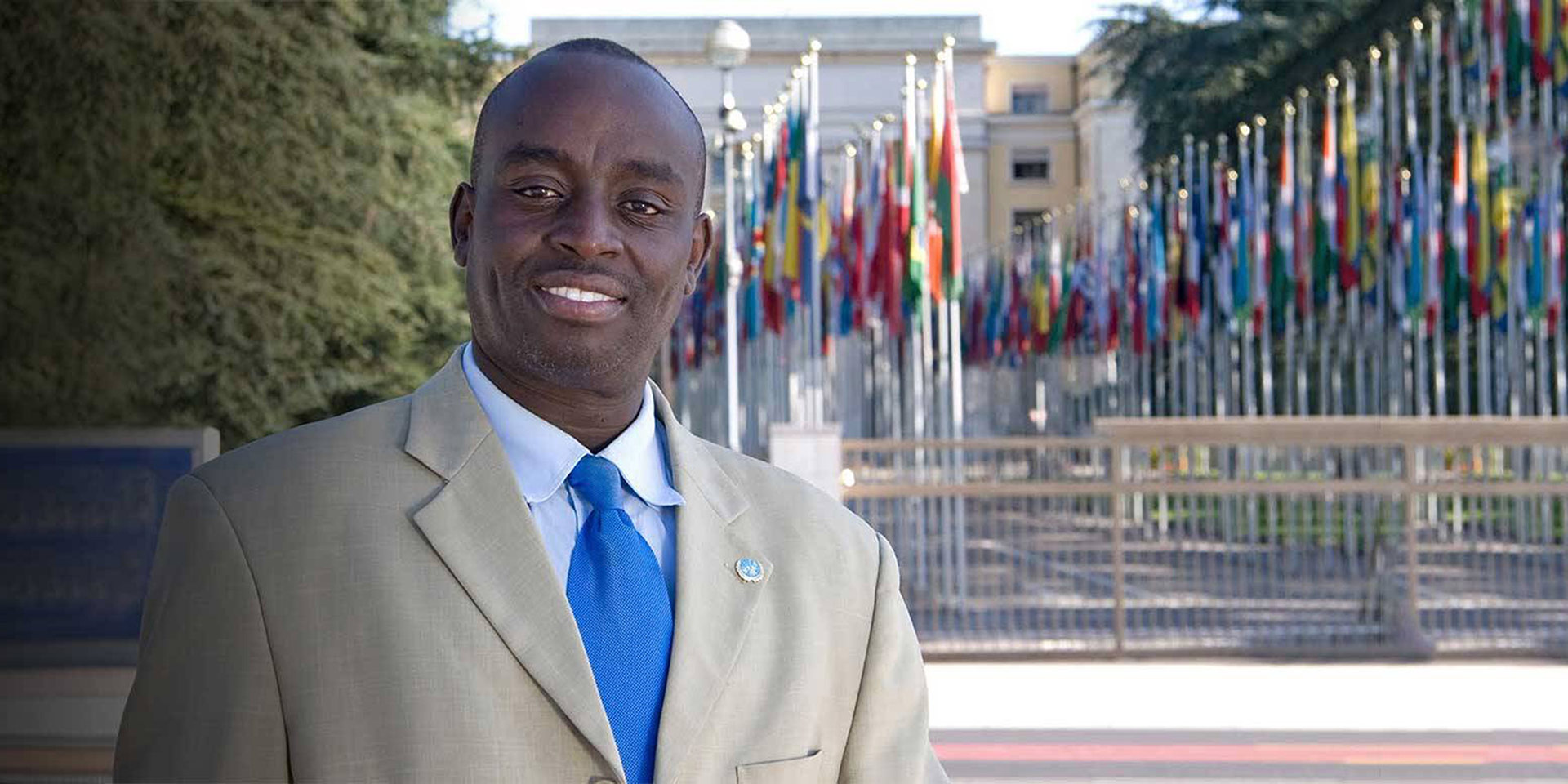In chaos theory, there is something that scientists call the “butterfly effect”—a seemingly insignificant event triggers a series of other events that later acquire significant importance. The butterfly effect has been used outside the realm of science as a metaphor for small things that have a considerable impact. When it comes to kindness, few things could demonstrate the butterfly effect better than the story of Chris Mburu and Hilde Back.
Chris was born in rural Kenya in the 1960s. He lived in an earthen house without electricity or running water, which the residents often supported with logs from the inside to keep it from collapsing on them. His parents couldn’t afford to buy him school supplies or clothing, so there was no way for him to attend middle school. Despite his evident intelligence, he seemed to be destined to work in the fields.
Chris was less than 10 years old when an education scholarship changed his trajectory. The monthly stipend he received was used to buy him shoes, proper clothing, and school supplies. Chris loved school immensely and excelled academically. The scholarship allowed him to attend high school and later become a college scholar in the capital city of Nairobi.
His exceptional academic achievements earned him a Fullbright scholarship to the United States, at Harvard University. When he finished Law School and became a human rights lawyer, he felt the need to show gratitude to the person who had made it all possible for him. All he knew was that the money had come from a lady in Sweden. He had corresponded with her a few times in the past through the foundation, but had lost all contact.
So, he began a relentless search for her to tell her how much she had changed his life. He contacted the Swedish Ambassador in Kenya and asked for his assistance in his pursuit. The ambassador requested the foundation to find the details about his benefactor, whose name was revealed to be Hilde Back. Shortly after, Chris decided to name his foundation after her, a foundation through which he intended to help Kenyan children in the same way Hilde had helped him. He then went to Sweden to meet her, but what he was about to encounter did not match the image he had created in his mind about Miss Hilde.
“When I first met her, I was amazed by her simplicity. I always assumed she was a wealthy woman looking for ways to spend her money. It turns out that she was an ordinary person with a normal life, and that really struck me—that she didn’t realise she had done anything important. She didn’t see herself as a hero, but she is my idea of the world’s grandmother,” Chris says.
Miss Hilde was a simple elderly woman in her 80s from a small town in Sweden who had been living alone since the age of 35. She had been a school teacher and, from her income, could donate the equivalent of $15, so she sent it month after month, for years, to the foundation that cared for Chris’ future. She knew she couldn’t do more, but she was consistent in her small contribution.
To show his gratitude fully and help her realise how much she had meant to him, Chris arranged a trip to his hometown. Miss Hilde was enthusiastically welcomed by the entire village and received the distinction of honourable village elder. In the preserved old footage, Miss Hilde is visibly moved by the welcome and by Chris’ gratitude. The two remained friends, and Chris visited her frequently in the following years.
The story of the two reached the ears of filmmaker Jennifer Arnold, who believed it had the potential to inspire many more people to make similar gestures. While talking with Miss Hilde, she discovered a detail that Miss Hilde had never shared with anyone, not even with Chris. The way things aligned was an incredible revelation to her, so she asked for permission to incorporate those elements into the documentary.
Miss Hilde was not originally Swedish, but Jewish. Her family had been helped with money by a stranger to escape Nazi Germany, but at the border only she was granted asylum, because she was a minor. They parted ways hoping they would meet again, but this never happened. Her parents died in concentration camps.
“I think it’s very important to care about other people from other cultures. I was once helped to escape the Nazis and come to Sweden, and it can affect you very much. I think it has affected me.”
Chris’ work at that time as a human rights lawyer at the United Nations closed the circle. His goal was to investigate and prevent mass atrocities in different parts of the world. Thanks to him, several people in the same situation as Miss Hilde over 70 years ago were being protected or assisted. “I feel it’s like something woven into one from two different pieces. I’m a religious person; I believe in a great protector,” said Chris.
The long-term impact of his present work on the lives of those he helps remains largely unknown and may only be discovered in a few decades. What is known now is the impact Chris has on the children in Kenya. Hundreds of children are assisted by the Hilde Back Foundation, which gained prominence through the documentary “A Small Act.” One of the students featured in the documentary is now a college student in the United States and intends to become a film editor. If he succeeds, Jennifer’s effort to bring the story to light will not go unrewarded.
From Germany to Sweden, from Sweden to Kenya, from Kenya to the United States, from the United States to the rest of the world, the story unexpectedly intertwines over more than 80 years and is far from over. “Many people believe that changing the world requires a grand gesture. But in reality, the world changes through a multitude of small acts.”[1]
Andreea Irimia is a computer science and technological education teacher.



















